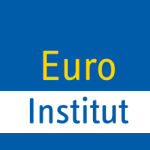The University of Southern Denmark (SDU) is a modern and rapidly growing university with 5 faculties (humanities, sciences, business and social sciences, health and engineering studies), it has more than 30,000 students of which 16% are international and 3,400 employees. It is now the third largest university in Denmark. SDU’s ambition is to develop cutting-edge research and innovative teaching in order to have a societal impact at regional, national and international level. SDU has a long experience in participating in and managing EU projects. SDU consists of several institutes and research centres, of which the Centre for Border Region Studies (CBRS) will be the main partner.
The Centre was established in 2016 as a cooperation between the Faculty of Humanities and the Faculty of Business and Social Sciences at the University of Southern Denmark. It aims to promote aspects of European border regions through research, teaching and exchange of experience. The Centre has an interdisciplinary approach to research in European Border Studies. It brings together researchers from different disciplines in the humanities and social sciences, such as political science, sociology, anthropology, geography, law and history. Competences and interests focus on four areas:
-development of the role and function of borders and border regions ;
the development of the role and function of borders and border regions; – contemporary European border regions: conflict and cooperation
– the role of (border) regions in the EU
– minorities in European border regions.
Research areas
The Centre for Border Region Studies (CBRS) is an inter-faculty research centre that is regionally based and internationally oriented. Since 1976, the German-Danish border region and German/Danish national minorities have been the main research focus. Gradually, the research has also opened up to the more general study of historical and contemporary aspects of European borders and border regions. Drawing on the profile and disciplinary approaches represented at the Centre, it now covers a wide range of topics related to Border Studies.
Methodology
The Centre for Border Region Studies brings together researchers from different disciplines who share a common research interest. They mostly use qualitative methods from their discipline in the humanities and social sciences. The Centre promotes an interdisciplinary, comparative and relational approach to border regions that combines and benefits from different disciplines.
Exchange of knowledge
The Centre for Border Region Studies continues a long tradition of establishing close links and exchanging knowledge with local civil society. In general, the research topics meet the needs of the general public in the region, who show a great interest in history and are largely involved in the development of the local border. The Centre cooperates closely with regional actors such as museums, archives and the Folkeuniversitetet and thus brings research into the public arena, enabling public debate on political and historical topics of the border region. This includes the organisation of exhibitions, public seminars on these topics, an annual conference with the German minority, cross-border events and the publication of a popular scientific magazine three times a year which disseminates the research results presented to the general public.
Study programme
The Centre for Border Studies is responsible for an international bachelor programme in European Studies in Sønderborg, Denmark. The programme, which is taught exclusively in English, is devoted to topics related to the social sciences. It has a defined profile in European regional policies and cooperation and attracts a large number of foreign students from several European countries.



